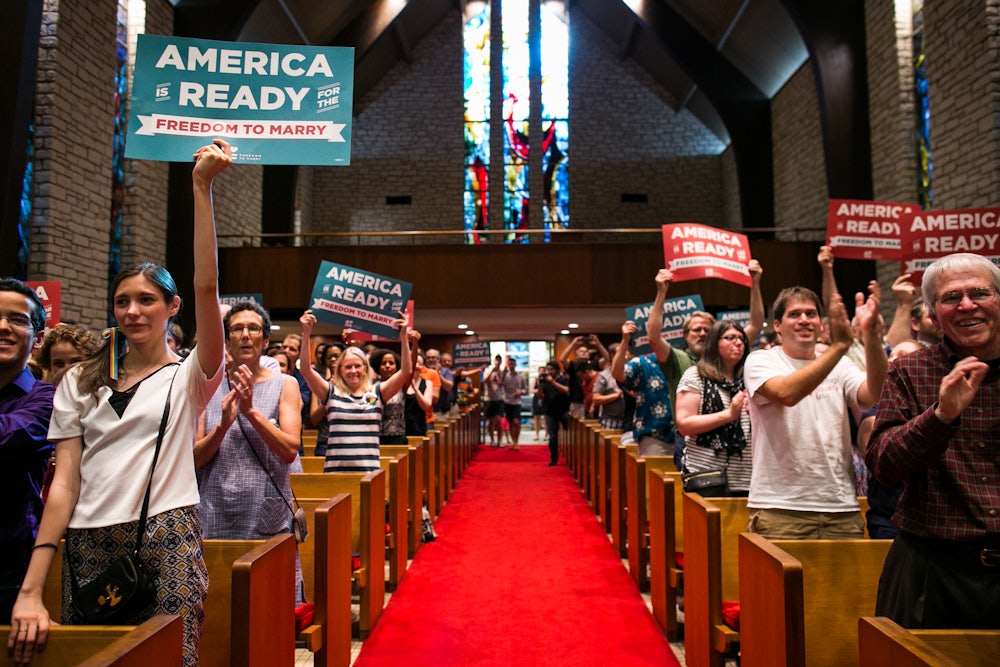In his New York Times column today, Douthat tried to tie Donald Trump’s popularity to an alleged large-scale rejection of the liberal “culture war.” There are a lot of problems with that argument; my colleague Ryu Spaeth addressed several of them earlier today. Another one is that Douthat assumes his own side in the culture war is monolithic on the issues that animate social liberalism, arguing that were it not for Trump, liberals might have paid the price for their dogmatism at the ballot box:
By nominating a Trump rather than a Nixon or a Reagan, the Republicans may have saved liberalism from repeating that trajectory. But it remains an advantage for the G.O.P., and a liability for the Democratic Party, that the new cultural orthodoxy is sufficiently stifling to leave many Americans looking to the voting booth as a way to register dissent.
Correction: Many older Americans are registering their dissent. A full 71 percent of millennials now support marriage equality, for example. And religious millennials are closing the gap. According to the Public Religion Research Institute (PRRI), 44 percent of white evangelical millennials support marriage equality. That’s a stunning number for one of America’s most reliably conservative demographics, and it’s sharply at odds with older evangelicals. Further, most religious millennials support the ordination of LGBT people.
These changes, in other words, aren’t just evident in the culture that we consume and that is produced, by and large, by coastal liberals. They are coming from within churches and communities that we would consider conservative.
